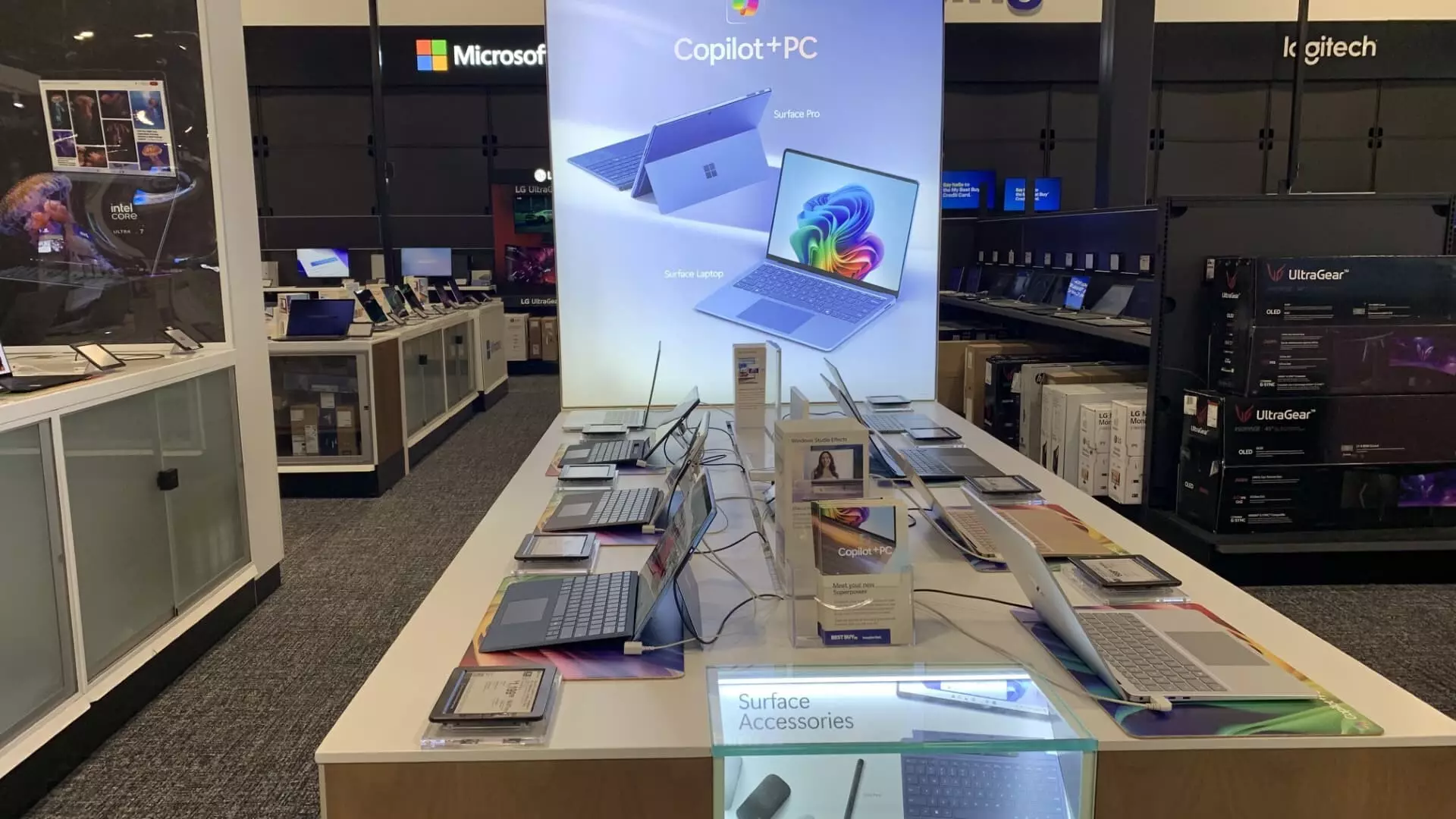The retail sector has been under scrutiny for a considerable time, with companies like Best Buy facing significant headwinds. In recent trading actions, Jim Cramer’s Charitable Trust made the decision to sell 165 shares of Best Buy at approximately $86 each, bringing its overall holding down to 600 shares. This adjustment is noteworthy as it reflects a prudent strategy amidst ongoing concerns about the electronic retail market’s future. A decline in customer spending, particularly in electronics, combined with external economic pressures such as tariffs on imports, has painted a stark picture for Best Buy and similar businesses.
Since October, Best Buy shares have experienced a tumultuous decline, influenced primarily by fears surrounding electronic retail sales. The potential rise in tariffs under the incoming Trump administration has heightened anxiety among investors, leading to cautious approaches towards companies like Best Buy. Additionally, the company’s dependence on housing market dynamics is crucial. As big-ticket items like home appliances and entertainment systems often rely on the turnover in the housing market, a slowdown in mortgage approvals and rising interest rates could further exacerbate sales figures.
The Federal Reserve’s cut in interest rates, juxtaposed with increasing mortgage rates, presents a disconnect that could hinder consumer confidence. Many consumers, facing higher borrowing costs, may delay purchasing larger, more costly items, resulting in disappointing sales figures—something Best Buy is remarkably sensitive to.
Cramer’s decision to trim the position in Best Buy isn’t merely a reaction to market fluctuation; it’s fundamentally about maintaining discipline and protecting gains. The rationale is clear: after acquiring shares early in 2024 and subsequently witnessing an impressive 8% gain, securing profits rather than risking them on uncertain future earnings is a sound investment strategy.
Anticipation of upcoming earnings reports can often result in volatility. If same-store sales figures disappoint, it can be detrimental to the stock price. Thus, preemptively selling off shares can serve as a protective measure against potential downturns. This shrewd tactic not only exemplifies caution but also the importance of strategic planning in investment.
Another dimension contributing to Best Buy’s struggles is the aggressive competition within the retail sector, particularly from giants like Walmart, Amazon, and Costco. The ongoing trend this earnings season suggests that these major players are seizing a larger portion of the market, leaving traditional retailers grappling for relevance. Cases like Target’s recent profit miss, resulting in over a 20% drop in stock value, further underline the volatility and competitiveness present in the current retail environment. Companies face increased risks if they do not adapt quickly to the changing landscape shaped by e-commerce expansion and shifting consumer preferences.
Conversely, niche players like TJX Companies and specialty retailers such as Williams-Sonoma showcase that not all segments face imminent threats. This highlights the need for retailers like Best Buy to innovate and differentiate themselves from the heavyweights capturing market share.
The current challenges facing Best Buy and similar retailers stem from a mix of external economic factors and increasing intra-industry competition. The recent shares sale by Jim Cramer’s Charitable Trust demonstrates a commitment to maintaining a disciplined investment approach. As retail dynamics evolve, adaptability, strategic foresight, and a nimble response to market changes will be vital for companies looking to sustain profitability and position themselves favorably in a competitive landscape.
Investors must remain vigilant, keeping abreast of shifts in consumer behavior, economic indicators, and corporate earnings reports to inform their strategies effectively. With disciplined investment principles and a keen understanding of market nuances, navigating through tumultuous times can become an opportunity for sustainable growth.

